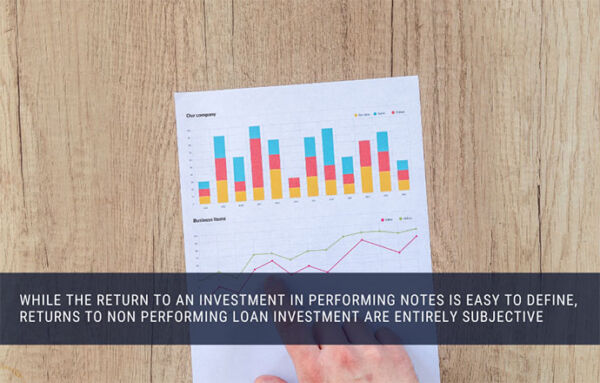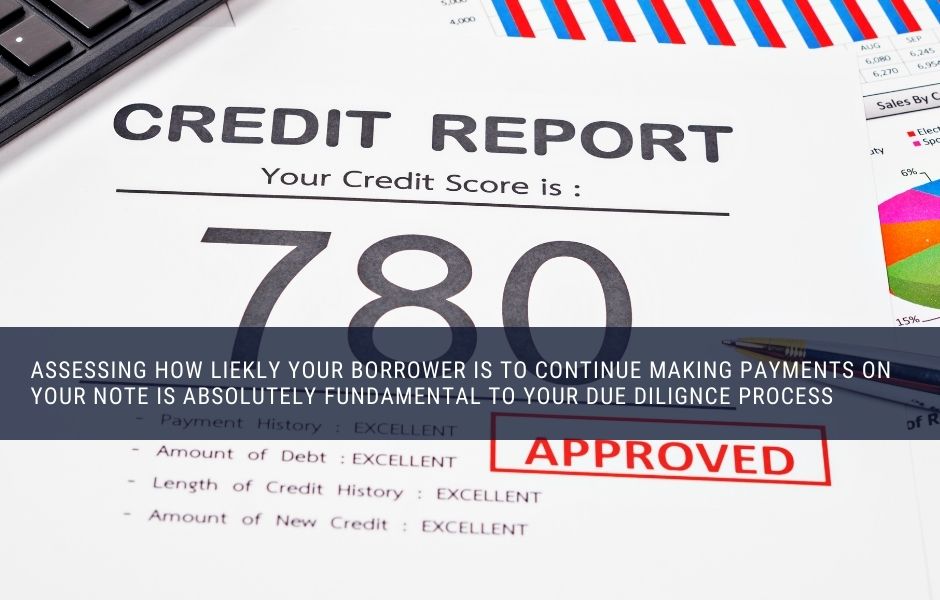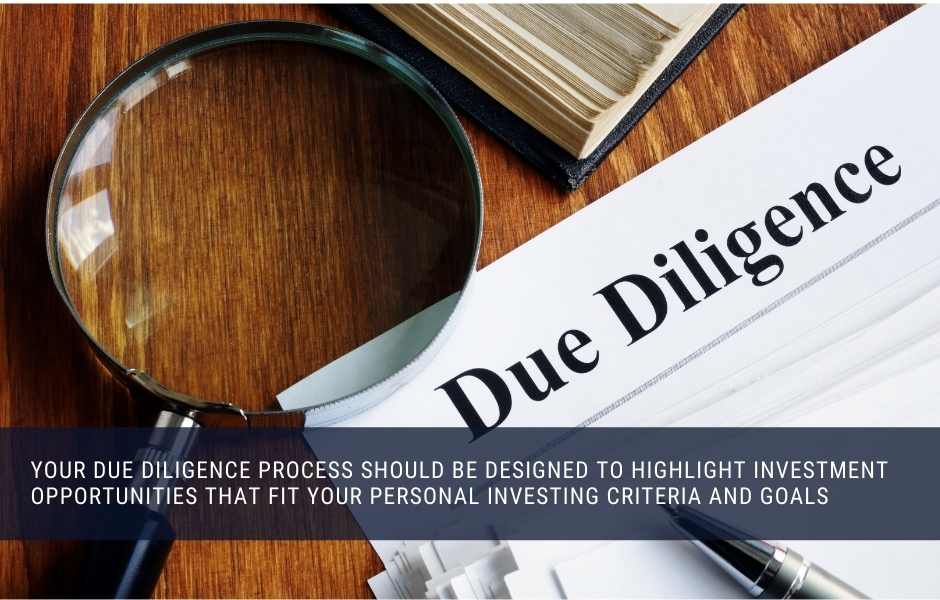5 Mortgage Note Investing Tips for 2022
Want to get into mortgage note investing? Well, as with any alternative asset, there's a lot to learn. Here are my top 5 tips to help get you started in 2022

David Garner
5 Real Estate Note Investing Tips
I talk about note investing a lot on this blog. My first ever investment in real estate back in 2010 was an investment in mortgage notes. I’ve since bought and sold performing and non-performing notes, and done a ton of private lending deals…
…I’ve made money, lost money, learned an heck of a lot about business and real estate, and met some fantastic people along the way.
In this short series of articles, I’m going to share with you my tops tips for investing in real estate notes in 2022 and beyond.
See Notes for Sale: Join 5,000+ investors and get mortgage note listings in your inbox every thursday
1. Know Thyself (and thy notes)
This might seem obvious, but I’ve seen so many people over the years jump right into buying a note without putting proper thought and consideration into the type of note they should be buying.
In order to figure that out, the first thing you need to do is really have a handle on your own investing goals, tolerance for risk, and the amount of time effort and resources (money) you are prepared to commit to your note investing endeavours.
For example… if you are looking purely for low risk, passive income, then investing in 1st position, performing notes with a good quality borrower, a strong payment history, and good collateral and paperwork is going to tick most of your boxes.
You’ll pay a premium for that type of low risk note, and you won’t set the house on fire with your returns, but then, you didn’t want to take a ton of risk, remember?

If you’re prepared to take more risk, and invest time and money in your note investing education, then buying non-performing notes, even those in 2nd position might be more fitting with your goals.
It’s those kinds of notes that make the really big wins, but those big wins are less common than you might think, and non-performing notes are often very time consuming complicated (and often very frustrating) to work out.
A good little mantra to bear in mind is that the discount on a note is your compensation for the amount of time, money, effort and risk involved in turning a profit.
After all, if it was easy, everyone would be doing it, right?
Related: Performing Notes vs Non Performing Notes | Which is the Best Investment?
2. Understand the People
Just like I discovered over the last 100+ real estate deals I’ve done, note investing, just like investing in physical real estate, is a people game. In fact, investing in notes is probably more people-centric than any business I’ve been involved in.
When you’re buying a mortgage note, there are many people involved. The better you understand the motivations and desired outcomes of each of them, the better positioned you’ll be to strike a good deal that works for everyone (and a profit for yourself).
Firstly, it’s a good idea to understand the motivations of the note seller.
Maybe they need the money to pay a tax bill, or to fund another investment. Maybe they are selling a note to exit their investment after successfully modifying the loan to get it reperforming.
In any case, if you can understand the motivation behind the sale, then you will stand a better chance of understanding the amount of money the seller actually needs for that note. That kind of information is negotiation gold dust!

Then, you should really get an idea of what’s happening with the borrower (payor). For me, this in fundamental.
If you are buying a performing note, then try to actually have a conversation with the payor. Are they happy with their current deal, or are they looking to refinance soon? Imagine buying a note only for it top be paid off in a couple of months. Believe me, ity happens.
Maybe they are starting to enter into some kind of financial difficulties, or worse, they already stopped making payments.
All of this information helps you to build a more accurate picture of the true value of a note, and the most likely outcome if you do go ahead and buy it.
Related: Understanding Credit Risk for Note Investors and Private Lenders
3. Trust and Verify
It’s a sad fact of the World that people lie. But they also make mistakes. Sometimes, they’re not even aware of what they don’t (but should) know. The World of note investing is no different.
That’s why it’s essential to verify every piece of information you obtain during your due diligence process when buying a mortgage note.

This is where getting yourself some good quality note investing education comes in because you need to learn how to conduct a thorough due diligence process.
Here are just a few of the very basics you need to verify:
- Taxes. Are they up to date? and who paid them last?
- Insurance. Is it current and valid?
- Payment history. Verify timely payments and read any servicer notes.
- An accurate property value. Personally, I obtain a Brokers Price Opinion.
- Paperwork… this is a big one. If things go bad you’ll be relying on your paperwork to get you out of trouble. There are professional companies that can help you with this, and in my opinion it’s worth paying for.
- Title. Is it clean? Again, there are professionals out there that will run title and highlight any issues that might be problem for you now or later.
My top tip here is to create your own due diligence checklist. Then you can mark off items as you verify them. This will help you filter out the deals that might end up causing you problems down the line.
4. Be Prepared to Pivot
One of the very best things about investing in mortgage notes is that you get to take the property back to repay your loan of the payor stops making payments.
You get all on the passive monthly income of real estate, without the hassle of owing physical property, but your still get the security of an insured, physical asset. Magic, right?
Well, let’s think about that. If you’re taking the property back, then things have gone wrong. And things DO go wrong.
For example, if you’re thinking of buying a performing note, then you need to make sure you don’t pay too much for the note. In a worst case scenario, you need to be able to sell the property for at least the amount you have invested (purchase price AND all your costs), so make sure your ITV (investment-to-value) is appropriate.

Of course, you have other options before you get to the point of foreclosure. You can try and work with the borrower to get them paying again. This might mean modifying the terms of the loan, entering into a period of forbearance, forgiving some of the debt or lowering the interest rate and/or monthly payments.
All of these things will cut into the profits you were going to make with Plan A, so make sure you have a Plan B that works, too.
This is all also true when investing in non performing notes.
You can set out with all the best intentions of helping a homeowner to keep their home by offering a great loan modification, only to find out they have absconded, or are unwilling or unable to accept the deal you had in mind.
In this case, will you still turn a profit if you have to foreclose?
Again, be prepared to pivot! I talked to seasoned note investor Jamie Bateman about the is very issue in episode 2 of my Note investing Mastery Podcast. You can access that episode here.
Related: 7 Real Estate Mortgage Note Investing Strategies
5. Leverage the Experts
I’ve already alluded to this in part 1 through 4 of this article.
You are not the first person to start exploring note investing. In fact, there is an entire industry out there offering a range of products and services to help you make better note investing decisions.
First off, you will need to educate yourself in order to avoid costly mistakes.
You will need to know where to find mortgage notes for sale, how to conduct your due diligence, and how to manage your notes once you’ve bought them.
There are tons of note investing education and training courses out there, but the quality varies wildly, from good value, quality education through outright scams.
I’ll be writing more about this in a separate article, so make sure to join my email list to stay up to date.

You’ll also likely want some professional help in checking all the due diligence boxes.
Fortunately, there are a ton of companies out there that specialize in various parts of the mortgage note purchase process, including obtaining and reviewing title reports, obtaining accurate property valuations, reviewing collateral files (paperwork), and checking our your borrower.
Finally, make sure you use a proper closing company or attorney to close on the purchase of your note, and get yourself some title insurance, too. Just those 2 very simple things can and will save your ass, trust me on that!
So, there you have it, 5 of my top tips for note investing through 2022 and beyond. i hope you found this article useful, and don’t forget to join our email list using the form below to get access to a ton of free note investing resources, as well as listing of notes for sale every Thursday.
[/fusion_text]Useful Links and Resources:
- Pro Title – Title and tax due diligence
- Richmond Monroe – Collateral File Review
- US Census Data – Market and demographic due diligence
- Lexis Nexis – Liens, Judgements and Credit Due Diligence


